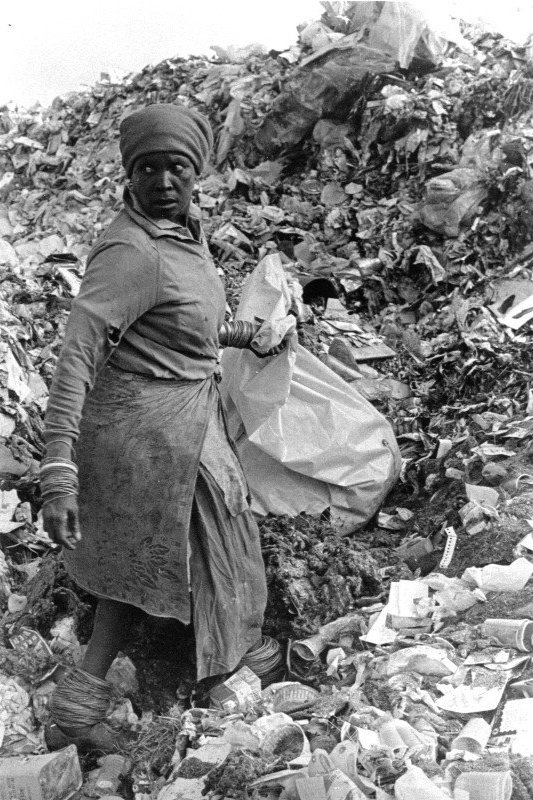
1948: National Party Takes Power
The National Party, led by Dr. Daniel François Malan, wins the general election and implements apartheid policies.
1950: Population Registration Act
The government passes the Population Registration Act, classifying South Africans by race (White, Coloured, Indian, Black) and determining their legal rights and restrictions based on this classification.
1952: Defiance Campaign
The African National Congress (ANC) initiates a nonviolent campaign of civil disobedience against apartheid laws.
1953: Bantu Education Act
The government introduces a separate education system for Black South Africans, designed to perpetuate racial segregation.
1958: Promotion of Bantu Self-Government Act
This act establishes separate homelands (Bantustans) for Black South Africans, leading to forced removals and land dispossession.
1961: South Africa becomes a Republic
South Africa withdraws from the British Commonwealth and becomes a republic with a White-only electorate.
1960: Sharpeville Massacre
Police open fire on a peaceful anti-passbook protest in Sharpeville, resulting in the deaths of 69 people and international condemnation.
In Britain, the Boycott Movement (launched in 1959) becomes the Anti-Apartheid Movement.
1963:
Playwrights sign declaration saying they will not allow their plays to be performed before segregated audiences in South Africa. The Musicians Union already banned its members from performing in South Africa, and Equity and the cine technicians union ACCT developed boycott policies.
1963-1964: Rivonia Trial
Nelson Mandela and other ANC leaders are arrested and subsequently sentenced to life imprisonment during the Rivonia Trial.
1969–70:
Tour of Britain by Springbok rugby team is disrupted, and Springbok cricket tour planned for summer 1970 is cancelled. From now on South Africa is excluded from virtually all major international sports competitions.
1976: Soweto Uprising
Black students in Soweto protest the compulsory use of Afrikaans in schools, leading to a violent government crackdown when young protesters are shot by police. Protests spread throughout South Africa and hundreds of students leave the country: many join the ANC.
1977:
UN Security Council imposes a mandatory arms ban on South Africa. This follows a long-running international campaign to boycott arms sales and military and nuclear collaboration with South Africa. Precipitated by the murder of Steve Biko in detention and the banning of black consciousness organisations and the Christian Institute.
1984: Tricameral Parliament
The government introduces a new constitution, creating separate legislatures for White, Coloured, and Indian South Africans, but still excluding Black Africans.
1984:
South African townships erupt in protests against rent rises. The apartheid government reacts by sending troops into the townships, detaining hundreds of people and imposing a State of Emergency in 1985. The townships become ungovernable.
1985:
Chase Manhattan Bank decides not to roll over its loans to South Africa, precipitating a South African government announcement of a moratorium on the repayment of its foreign debts. In the following year Barclays Bank and other British and US companies pull out of South Africa.
1986: International Sanctions
The international community imposes economic sanctions on South Africa to pressure the government to end apartheid.
1989: F.W. de Klerk Becomes President
F.W. de Klerk becomes South Africa's president and begins a process of reform, including the lifting of the ban on the ANC and other anti-apartheid organizations.
1990: Nelson Mandela Released
Nelson Mandela is released from prison after 27 years, signalling a significant shift in South African politics.
Namibia wins its independence and Sam Nujoma is installed as president after one-person one-vote elections at the end of 1989. This follows military defeat at Cuito Cuanavale in southern Angola in March 1988.
Nelson Mandela is released from prison on 11 February. His release follows a long-running international campaign, climaxing in the AAM’s ‘Nelson Mandela: Freedom at 70’ campaign in June–July 1988.
1991-1993: Negotiations and Reforms
Negotiations between the government and anti-apartheid groups, including the ANC, lead to significant constitutional reforms.
1993: Nobel Peace Prize
Nelson Mandela and F.W. de Klerk jointly receive the Nobel Peace Prize for their efforts to end apartheid.
1994: First Democratic Elections
South Africa holds its first democratic elections, and Nelson Mandela is elected as the country's first Black president.
South Africa holds its first one person one vote election on 26–29 April. Nelson Mandela is inaugurated as President of South Africa on 10 May.
1996: New Constitution
South Africa adopts a new constitution, ensuring equal rights and protections for all citizens, regardless of race.
1999: Thabo Mbeki Presidency
Thabo Mbeki succeeds Nelson Mandela as president, continuing the process of reconciliation and nation-building.
Apartheid officially came to an end with the establishment of a multiracial, democratic government in South Africa in the mid-1990s.

